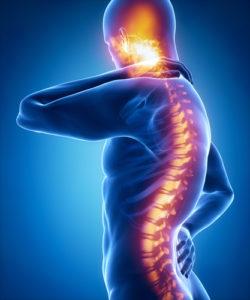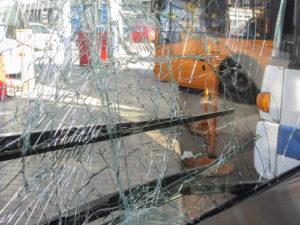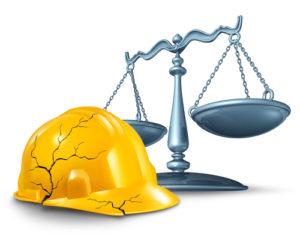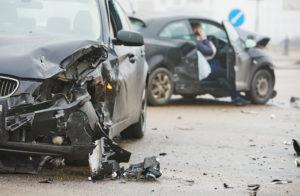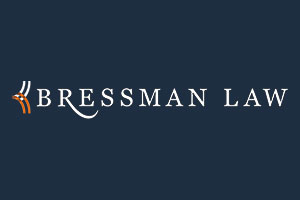

If someone failed to obey a traffic signal and you got hurt as a result, a Columbus failure to obey traffic signals lawyer could help you go after compensation for your losses. Usually, breaking the law is evidence of negligence.
You do not have to run up your credit cards to get our help. We handle traffic accident cases on a contingency-fee basis. Our fees come out of the settlement proceeds or award at the end of the matter. We do not get paid until you win.
You can call Bressman Law today at (614) 538-1116 for a free consultation. There is no obligation.
How the Failure to Obey Traffic Signals in Columbus Can Cause an Accident
It is not possible to list here all the ways that someone’s failure to obey a traffic signal can cause an accident, but here are a few examples:
- Running a red light: when someone runs a red light, they often travel at high speed into the path of cross traffic. The front end of the car that fails to stop at the signal can strike the side of a vehicle that is in the intersection legally. The struck car gets “t-boned,” a type of impact that can cause severe injuries to a person inside the vehicle. Doors provide less impact protection than bumpers.
- Failure to merge or yield right of way: some people ignore traffic signals that direct them to merge with traffic or yield the right of way. These signals are at locations like on-ramps to highways, where the non-yielding car can get hit by a vehicle traveling at high speed. Also, since most highway on-ramps merge onto the far-right lane, which can be a truck lane, the law-breaker risks crashing into a massive tractor-trailer.
- Not paying attention when the light turns green and getting rear-ended by another inattentive driver: many accidents happen because two or more people make mistakes, and the events combine to create a collision. Perhaps a driver was reading text messages while stopped at a red light. He did not notice when the light turned green. The driver behind him was also distracted and ran into the back of the stopped car.
Do not worry if your accident scenario is not one of these three mentioned. A Columbus failure to obey traffic signals attorney can evaluate whether you might be eligible for money damages for your injuries.
For a free legal consultation with a failure to obey traffic signals attorney in Columbus, call (614) 538-1116
How We May Prove Who Was at Fault
Ohio law does not allow us to sue everyone involved in the collision. Before we can hold someone responsible for your losses, we must prove all four of these elements:
Duty of Care
The duty of care is straightforward in these cases. Per Ohio Revised Code 4511.12, everyone who operates a motor vehicle on public roads must obey the law, including traffic signals.
Breach of the Duty
When a person’s conduct does not measure up to the legal standard, it is negligence. For example, a person who fails to obey a signal that instructs him to yield the right of way when entering a highway is negligent.
Causation
The careless act must be the thing that caused or contributed to the accident. Perhaps a driver ignored a yield signal when entering a highway from an on-ramp. Forcing his way into the highway traffic, the non-yielding driver forced several drivers to slam on their brakes. Within seconds, there was a multi-car collision. The driver’s carelessness in failing to yield caused the crash.
Quantifiable Damages
There must be measurable damages for a plaintiff to go after compensation for his losses from a car accident. Physical injury counts as quantifiable damage.
We realize that these legal terms and concepts can be somewhat overwhelming, but do not worry. Your Columbus failure to obey traffic signals lawyer can take care of the legal issues inherent in your injury claim. You can call Bressman Law today at (614) 538-1116 to get started.
Columbus Failure to Obey Traffic Signals Attorney (614) 538-1116
Three Pitfalls to Avoid After a Columbus Motor Vehicle Collision
You might think that getting hurt in a car crash is one of the worst things that can happen, but the situation can become even worse afterward, when you have to deal with the at-fault driver’s liability insurance company. Here are just a few of the traps that may decrease the amount of compensation you can collect or rob you of the right to pursue any money damages at all:
- Accepting a lowball offer: when you cannot work because of your injuries, and the medical bills and living expenses keep piling up, you might get tempted to accept the first offer the claims adjuster makes. Many people who try to handle their injury cases without a lawyer find out later that they should have received much more money. Once you settle, you cannot go back for more compensation.
- Accepting advice from the claims adjuster: although he might act friendly and tell you that you do not need a lawyer, the claims adjuster is not your friend. His job is to pay you as little as possible for your injuries. His boss, the multi-billion-dollar insurance company, makes its profits by paying injured people less money than they deserve.
- Waiting too long to take legal action: if it feels as if the claims adjuster is dragging out the settlement negotiations, you might be correct. The adjuster knows that you will forever lose the right to pursue compensation for your losses if you miss the deadline for filing a lawsuit against the at-fault party. The insurer will have no duty to pay you a cent at that point.
You might want to work with a Columbus car accident lawyer to make sure that you do not fall into any of these pitfalls, including the statute of limitations outlined in Ohio Revised Code 2305.10.
Click to contact our Ohio Car Accident Lawyers today
How to Get Help for a Columbus Failure to Obey Traffic Signals Collision
At Bressman Law, we have your back. A Columbus failure to obey traffic signals lawyer from our team can protect you from the tactics of the at-fault party and insurance companies. We work hard, and we get the job done.
You can call us today at (614) 538-1116 for a free consultation. There is no obligation.
Call or text (614) 538-1116 or complete a Free Case Evaluation form

